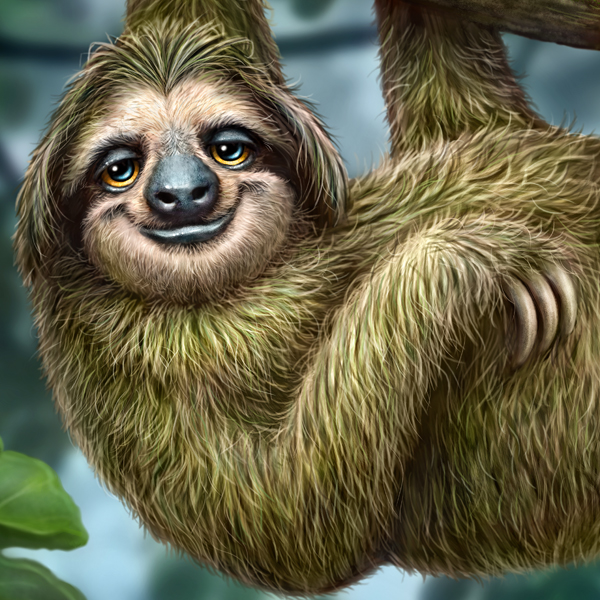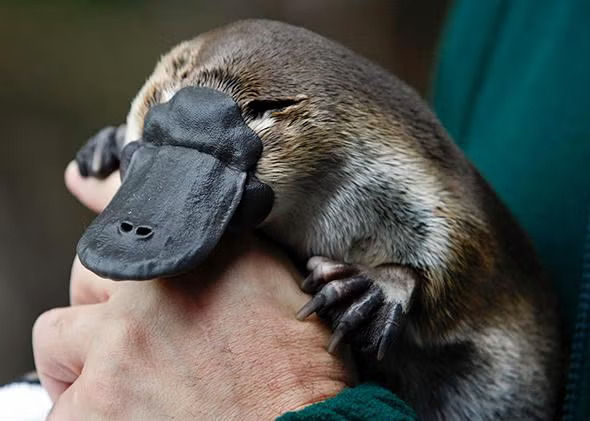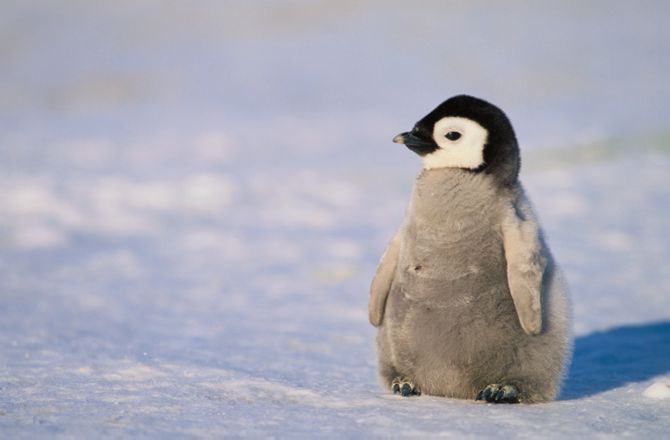In the animal kingdom, there are many animals that are often considered "silly and naive" because of their behavior or nature. Here are a few typical examples:

Habitat: Sloths live mainly in the rainforests of Central and South America, hanging on trees all year round.
Behavioral characteristics: Sloths are known for their extremely slow movement speed, moving only a few meters per hour. They are very slow to react, even slow to escape from predators.
Naive: Sloths are naturally docile and not good at self-defense. Their "stupidity" is reflected in their inability to avoid danger, and sometimes they even fall from trees because they can't tell the direction.
Survival strategy: Despite this, the "stupidity" of sloths is actually a survival strategy. By reducing the amount of exercise, they can save energy and survive in an environment where food is scarce.

Habitat: Platypuses live in rivers and lakes in Australia.
Behavioral characteristics: Platypuses are unique animals that have both mammalian characteristics and bird and reptile characteristics, such as a flat bill and webbed feet like a duck.
Innocence: The "silliness" of the platypus is reflected in its peculiar appearance and behavior. Its toy-like mouth and its poor hunting skills give people a sense of "ridiculousness" and "innocence".
Survival strategy: Although it looks silly, the platypus has poisonous hind leg spines that can effectively defend itself when threatened.
Habitat: dolphins.html">Dolphins are widely distributed in major oceans and some freshwater areas around the world.
Behavioral characteristics: dolphins.html">Dolphins are known for their high intelligence and friendly behavior. They often interact with humans and show curiosity.
Innocence: dolphins.html">Dolphins' innocence is reflected in their trust and curiosity towards humans. They often take the initiative to approach ships or coasts, and even maintain a friendly attitude when they encounter danger.
Survival strategy: Dolphin groups are highly social and cooperative. This "innocence" actually reflects their trust and cooperation in the group.

Habitat: Penguins mainly live in Antarctica and cold areas of the Southern Hemisphere.
Behavioral characteristics: Penguins are loved by people for their clumsy steps and cute appearance. They seem to stagger when walking on land and look "silly".
Innocence: Penguins are not afraid of humans and will even approach them actively, showing a "naive and fearless" nature. In addition, their mating and brooding behaviors also appear to be very focused and carefree.
Survival strategy: Penguins' "silliness" and "naivety" do not prevent them from surviving in harsh environments, especially under the shelter of the group, they can snuggle up to each other for warmth in the cold and hunger and successfully reproduce.
Habitat: Koalas live in eucalyptus forests in Australia and live in trees all day long.
Behavioral characteristics: Koalas live by sleeping and eating eucalyptus leaves all day long. They have very little activity time every day, giving people a lazy and cute feeling.
Naivety: Koalas have poor adaptability to environmental changes and are easily affected by human activities. In addition, their food source is single, mainly relying on eucalyptus leaves, which seems a bit "stupid".
Survival strategy: Although koalas seem lazy and a bit "stupid", they have a strong digestive ability for eucalyptus leaves, which can effectively obtain the nutrients they need and survive.
These animals are often considered symbols of "stupidity" or "naivety" because of their unique behavior and appearance, but these characteristics often reflect their survival strategies to adapt to the environment. Each animal has its own unique evolutionary path, and although it sometimes seems silly, they have found a unique way to survive in their respective ecosystems.
animal tags: Sloth Platypus Koala Penguin
We created this article in conjunction with AI technology, then made sure it was fact-checked and edited by a Animals Top editor.